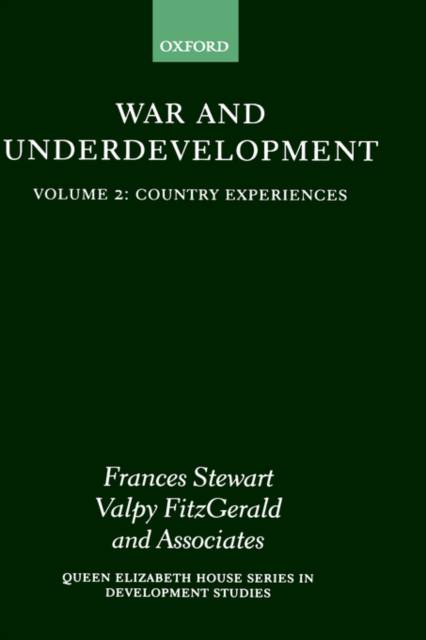
Door een staking bij bpost kan je online bestelling op dit moment iets langer onderweg zijn dan voorzien. Dringend iets nodig? Onze winkels ontvangen jou met open armen!
- Afhalen na 1 uur in een winkel met voorraad
- Gratis thuislevering in België vanaf € 30
- Ruim aanbod met 7 miljoen producten
Door een staking bij bpost kan je online bestelling op dit moment iets langer onderweg zijn dan voorzien. Dringend iets nodig? Onze winkels ontvangen jou met open armen!
- Afhalen na 1 uur in een winkel met voorraad
- Gratis thuislevering in België vanaf € 30
- Ruim aanbod met 7 miljoen producten
Zoeken
War and Underdevelopment
€ 125,95
+ 251 punten
Omschrijving
This study presents a new, multi-disciplinary theory for explaining and predicting current and future patterns of women's choice between employment and family work. Preference theory is the first theory developed specifically to explain women's behaviour and choices. As such, it constitutes a major break from male-centred theorizing to date in sociology and economics. Preference theory is grounded on the substantial body of research on women's work and fertility that has flourished within feminist scholarship. It identifies five major historical changes that collectively are producing a qualitatively new scenario for women in prosperous societies in the 21st century. Throughout the analysis, the USA and Britain illustrate what the new scenario means for women and how it alters their preferences and work-lifestyles choices. The book also reviews research evidence on contemporary developments across Europe, Canada, Australia, Japan and the Far East to develop a new theory that is international in perspective.
Specificaties
Betrokkenen
- Uitgeverij:
Inhoud
- Aantal bladzijden:
- 324
- Taal:
- Engels
- Reeks:
Eigenschappen
- Productcode (EAN):
- 9780199241880
- Verschijningsdatum:
- 15/02/2001
- Uitvoering:
- Hardcover
- Formaat:
- Genaaid
- Afmetingen:
- 156 mm x 234 mm
- Gewicht:
- 621 g

Alleen bij Standaard Boekhandel
+ 251 punten op je klantenkaart van Standaard Boekhandel
Beoordelingen
We publiceren alleen reviews die voldoen aan de voorwaarden voor reviews. Bekijk onze voorwaarden voor reviews.










